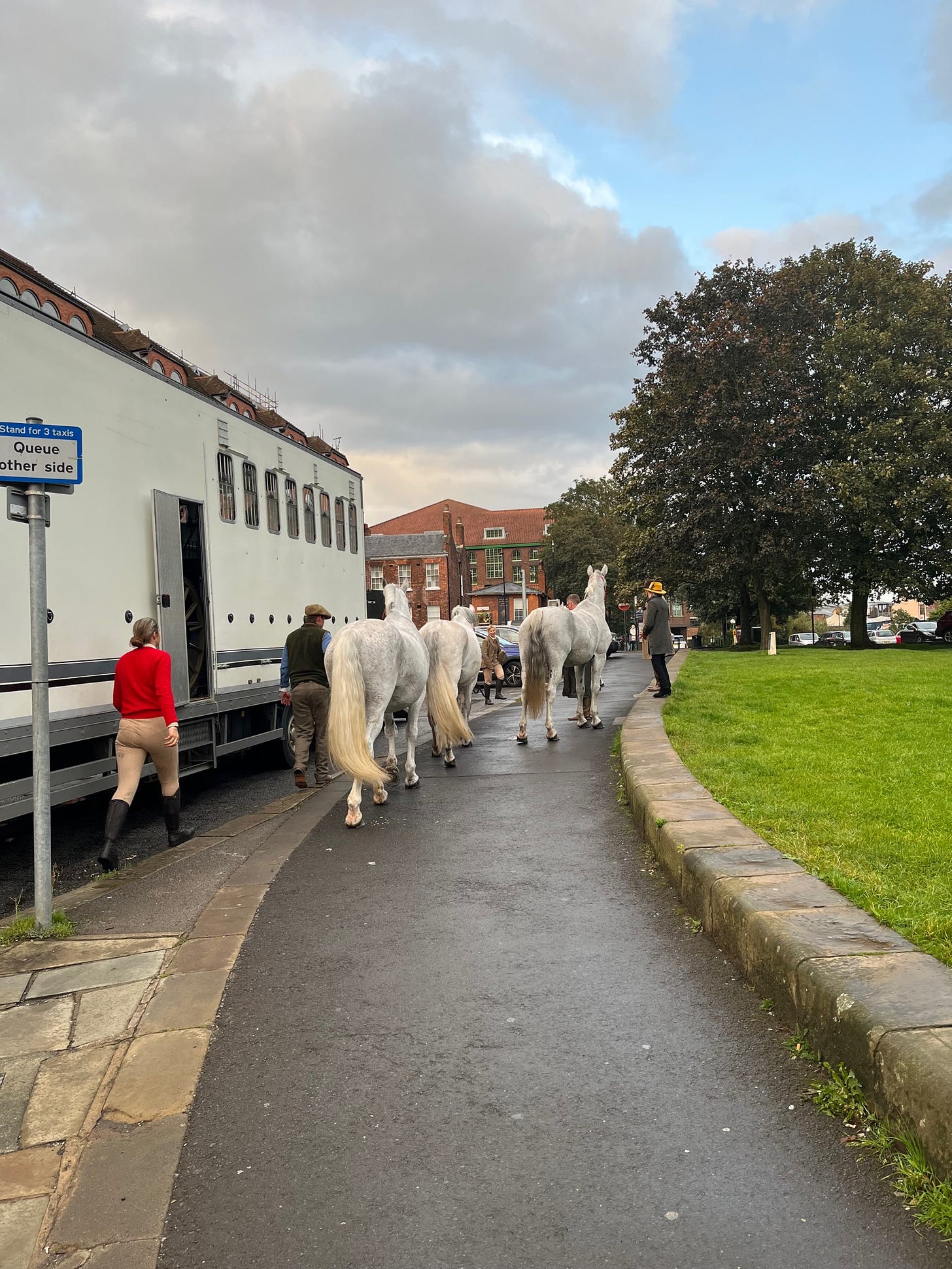Toronto, October 15, 2023
The eternal note of sadness
How do you live a normal day-to-day life when the world is on fire?
And the world is on fire, now as ever. Look to poets to describe its plight. Mathew Arnold, in 1867: “...we are here as on a darkling plain/ Swept with confused alarms of struggle and flight,/ Where ignorant armies clash by night.” (Dover Beach) W.H. Auden, in 1939: “Waves of anger and fear/ Circulate over the bright/ And darkened lands of the earth...” (September 1, 1939)
We face calamity, no matter where we live, no matter when we live, no matter our personal circumstances. Some suffer far more than others, but the stain spreads always. No one is safe as the plunge pool of misery widens and deepens.
How should ordinary people respond to the disasters that surround them? What stratagem can we use to keep going? For we must keep going. Auden again (as he sits in “one of the dives on Fifty-second Street” in New York City as World War Two begins): “Faces along the bar/ Cling to their average day:/ The lights must never go out,/ The music must always play...” Or the novelist Ian McEwan: “...it was time to keep his head down and stay faithful to the tasks he set himself. There was value in thinking less.” (Lessons: A Novel)
What if, like almost everybody, you are without influence, stuck on the sidelines of opinion, powerless to make things even slightly better? Impotent, unable to act, how do you remain sane, let alone modestly cheerful? How do you go about quotidien business as catastrophe unfolds?
These days individuals pay non-stop attention to social media, endlessly imbibing partisan lies and misrepresentations that stoke anger and frustration. Institutions issue “statements” designed to satisfy their outrage, proclaim their virtue, and placate their membership. These usually anodyne institutional statements are picked apart by those with an axe to grind and do not satisfy, convince, or placate anyone. Meanwhile, traditional media offer a confusing cacophony of opinion. (“Lord Ronald ... flung himself upon his horse and rode madly off in all directions.”)
Shakespeare said, “All the world’s a stage,/ And all the men and women merely players...” (As You Like It) Most of us are not even players, but merely members of the audience. We buy a ticket to the performance, so to speak, and from our seats watch actors declaim and events unfold, unable to control or influence either. And we can’t leave after the first act if we don’t like the play.
Does accepting that we are only passive, enchained spectators of happenings on the world stage help us with our daily lives? Do we just have to accept things the way they are? The Scottish sage Hamish Gow said, implying acceptance, “These are neurotic times, but they are the only times we have.” Is that point of view helpful or comforting? I think not.
I think it is better to rage against the dying of the light.
Notes from readers
Endgame #39 about white horses continues to strike a chord. One reader wrote: “On our long drives to Clear Lake as children we were always on the lookout for white horses. Oh the joy of being the first one to see a white horse!”
A reader visiting Scotland sent this picture:
A comment on #41 posted on Substack read: “Sadly I don’t recall where I read this but I found it an interesting perspective on the issue of how time presents itself to many of us as we age. ‘Every morning I woke up in the grip of two opposite fears: that my time on earth was streaming away behind me with unbearable swiftness; that another day loomed up in front of me with leaden interminability.’”
Another reader of #41 urged me to examine the philosopher Henri Bergson’s distinction between “temps” and “durée.” (“Bergson distinguished between time as we actually experience it, lived time – which he called ‘real duration’ (durée réelle) – and the mechanistic time of science.”) For more, see here.
Someone else recommended that I recall what the economist John Maynard Keynes said about the long run. Keynes said, “In the long run we are all dead.”





Back in the day, I loved performing Samuel Barber's setting of 'Dover Beach' ... https://www.youtube.com/watch?v=JFInOX2wqXQ here performed by the composer. I think because of the presence of the eternal ocean whose ebb and flow will remain whatever comes.
Humans are too damaged and too frail for our outrage to have any impact. But, when oh when will humans learn that cruelty and violence never work. They always and only beget more. I am heartsick and will do what I usually do these days - nurture my relationships, add my plea for peace to the media I use and turn to good works of man and nature for comfort, inspiration and hope.